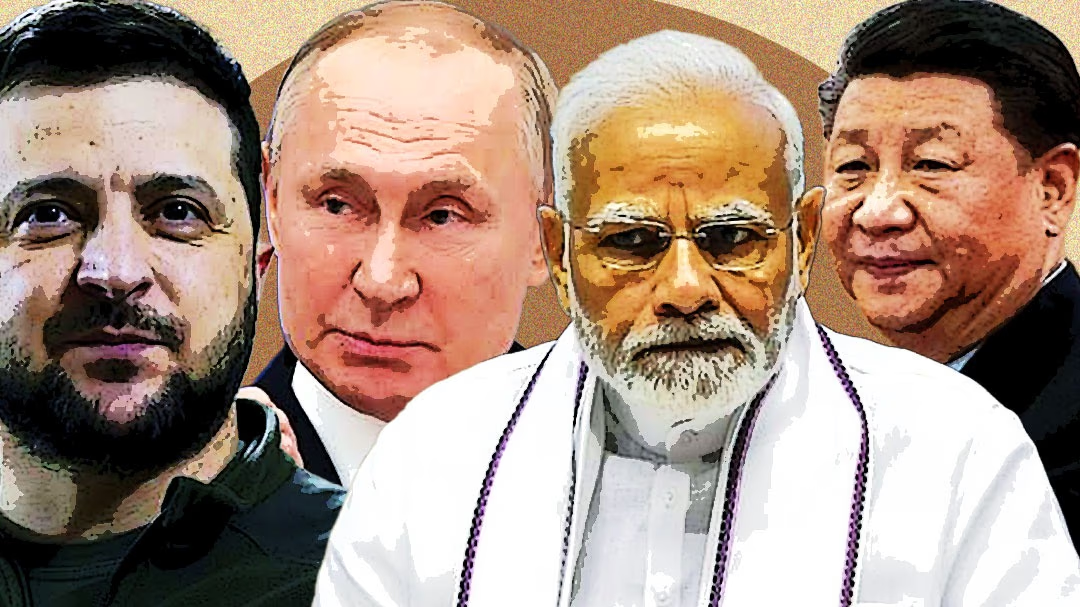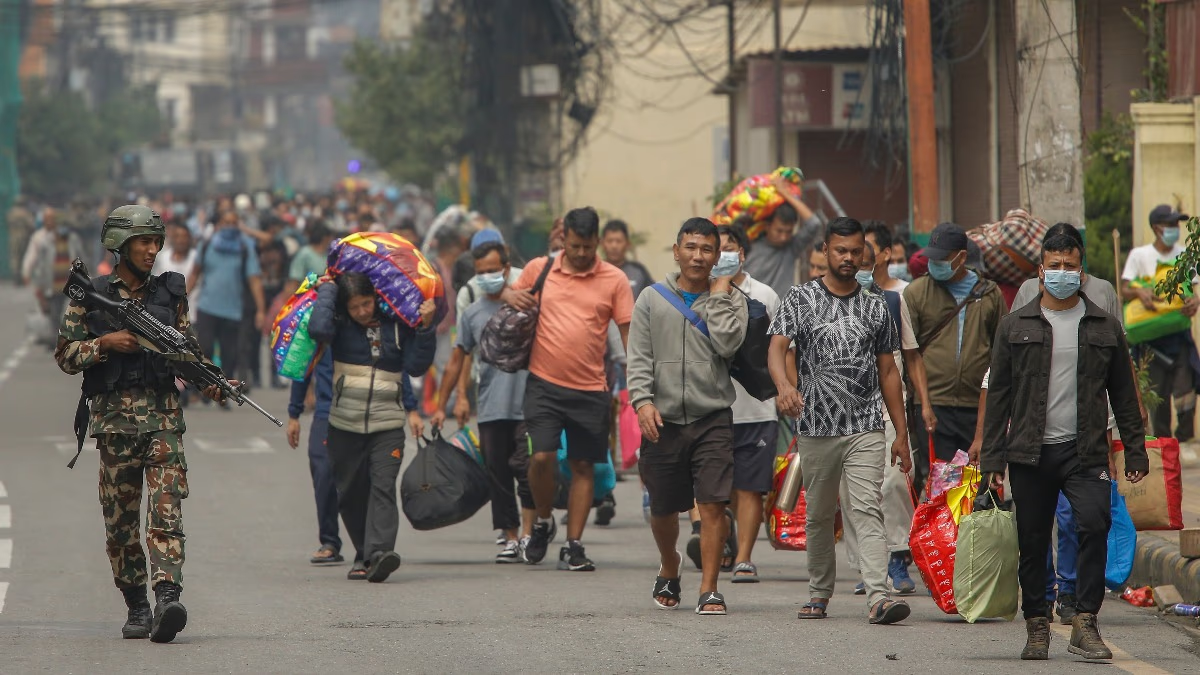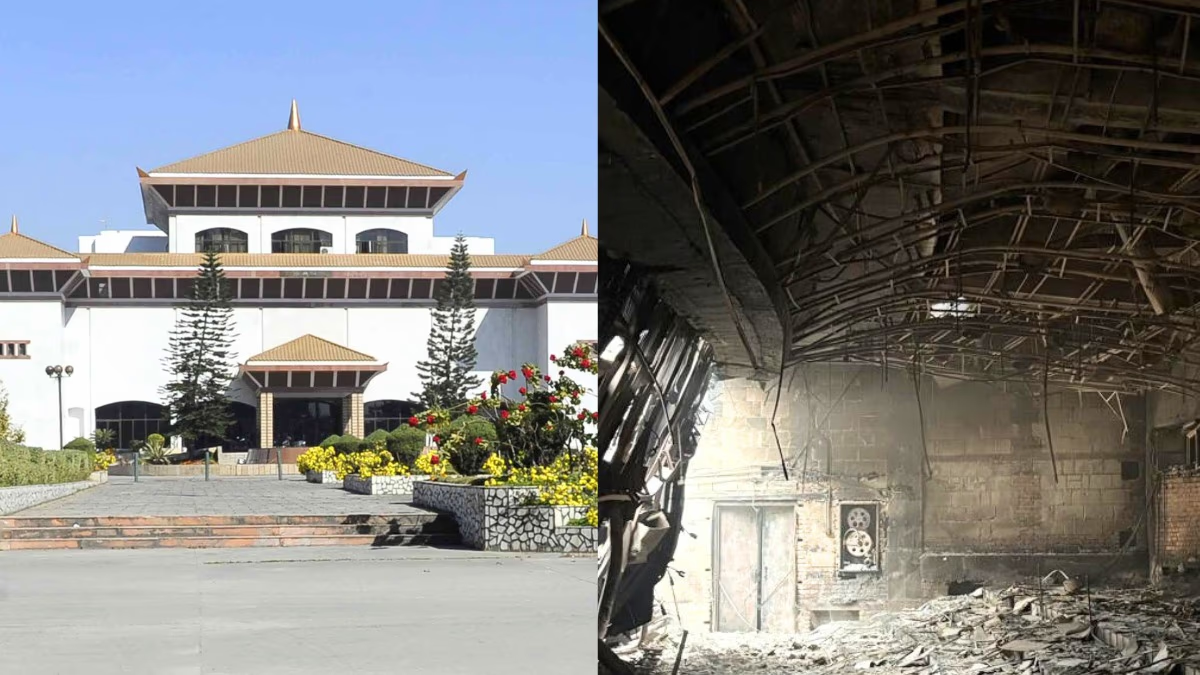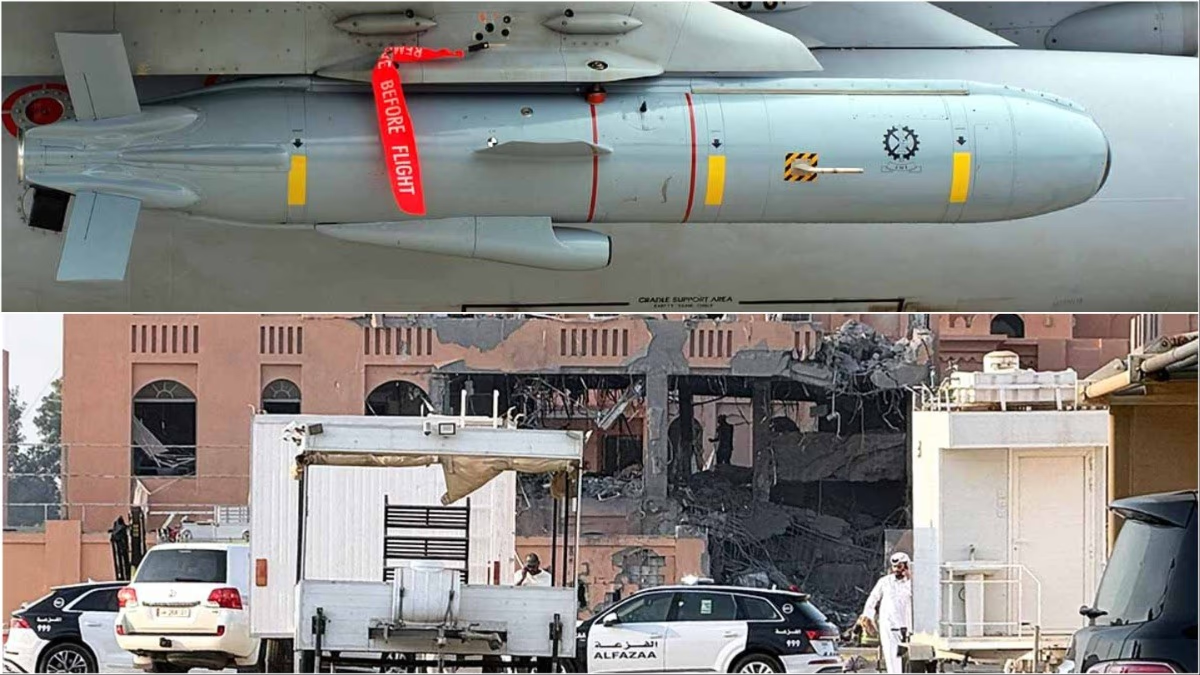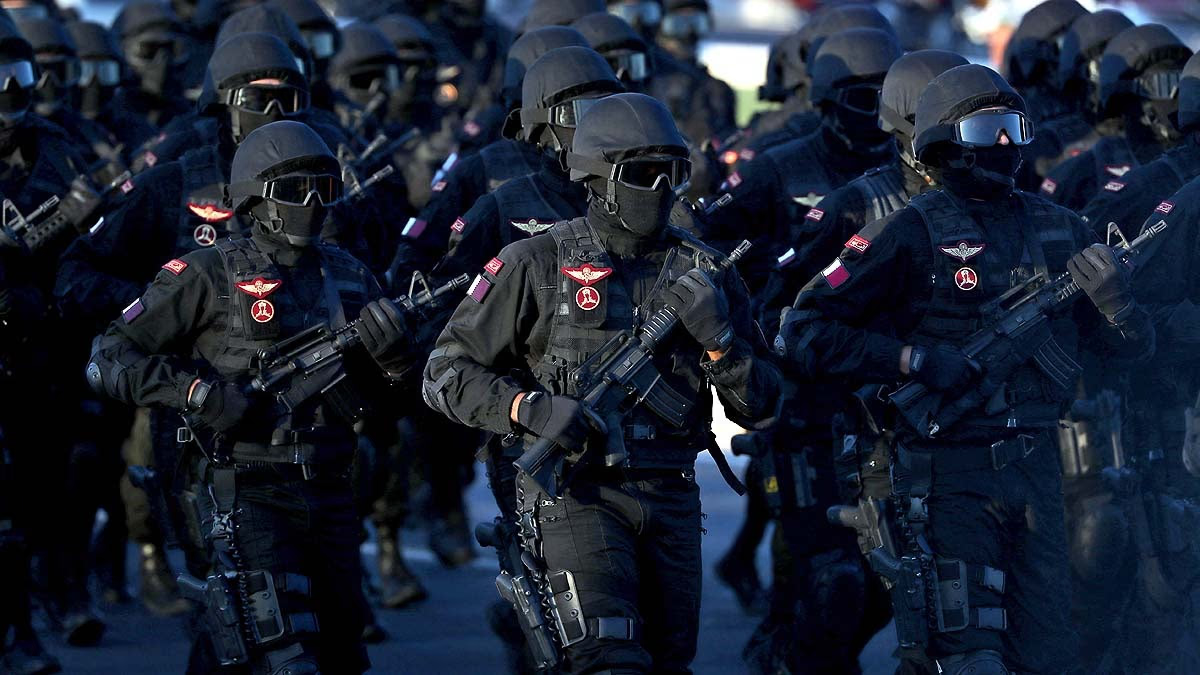War is the failure of diplomacy...
This means that when problems are not solved at the negotiation table, they often lead to war. Russia and Ukraine have been engulfed in the flames of such a war for two and a half years. Amidst this battlefield, Prime Minister Modi has visited both countries within 46 days. His goal is clear - to deliver a message of peace amidst the devastation of war. When President Zelensky states in a packed press conference that Modi desires peace more than Putin, it's essential to gauge the seriousness of this statement. India is ready to play the role of a peacemaker between the two nations, with Ukraine and America hopeful that India can fulfill this role. However, China is not comfortable with this notion.
After PM Modi's announcement of his visit to Ukraine, significant international discussions ensued. The Indian Prime Minister's visit to Ukraine became a widely discussed topic. Coincidentally or otherwise, just two days before Modi's arrival in Ukraine, Chinese Premier Li Qiang headed to Russia, warmly meeting President Putin.
China's inclination towards Russia is no secret. Despite this, China has tried to present itself as an impartial nation in this war. When many European countries, along with the U.S., imposed economic sanctions on Russia following its attack on Ukraine, China stood firmly by Russia. President Xi Jinping assured Putin that economic assistance from China would continue.
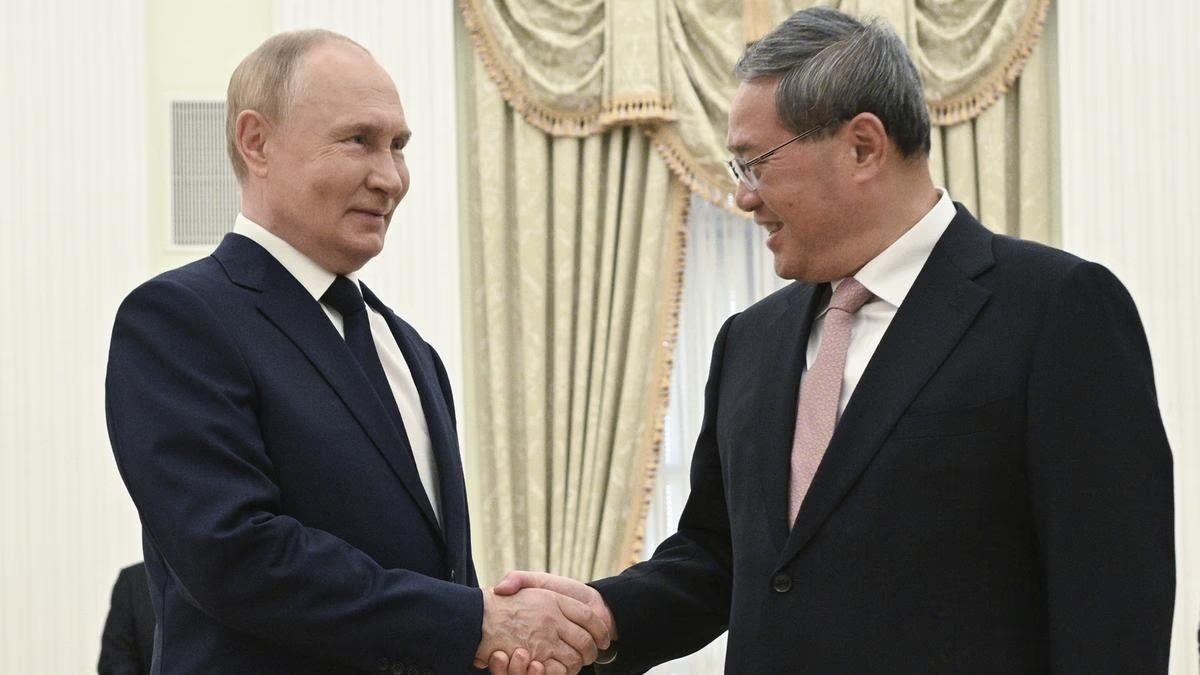
Source: aajtak
Why Does China Have an Issue with India?
China is annoyed by India's continually strengthening global image. During the war, many major countries see India as a potential peacemaker, a notion that doesn't sit well with China. It is uncomfortable with India's rising stature on the global stage.
China was so irritated by PM Modi's visit to Ukraine that the state-run newspaper Global Times outrightly dismissed India's potential role as a peacemaker. The newspaper stated that Modi showed eagerness to bridge the gap between the warring nations but lacked the capability to do so. According to the newspaper, Modi's action was merely an attempt to showcase India's prominence on the global stage, asserting that India would play no role in establishing peace between the nations.
China aims to establish its dominance on the global stage. Experts believe that in 2023, China played a crucial role in the Iran-Saudi Arabia deal. China knows that by playing a peacemaker in the Russia-Ukraine conflict, its significance on the global level can increase. This success could open many doors for China, which is another reason China is uneasy with India's potential role in restoring peace between Russia and Ukraine.
Is China Trying to Ride Both Boats?
China's friendship with Russia is well-known. Despite this, it has been increasing its investment in Ukraine's infrastructure for many years. China has invested in various sectors in Ukraine, from energy to agriculture and transportation. From 2016 to 2021, China's investment in Ukraine grew from $50 million to $260 million. In 2019, China emerged as Ukraine's largest trading partner. Additionally, Ukraine struck a significant defense deal with China and joined China's ambitious Belt and Road Initiative in 2017.
In May 2023, China's special representative Li Hui visited Ukraine, Poland, France, Germany, and Russia. During this period, China presented a ceasefire plan between Russia and Ukraine, with President Xi Jinping proposing a 12-point peace plan addressing sovereignty and Cold War mentality, though it lacked a solid framework for making peace.
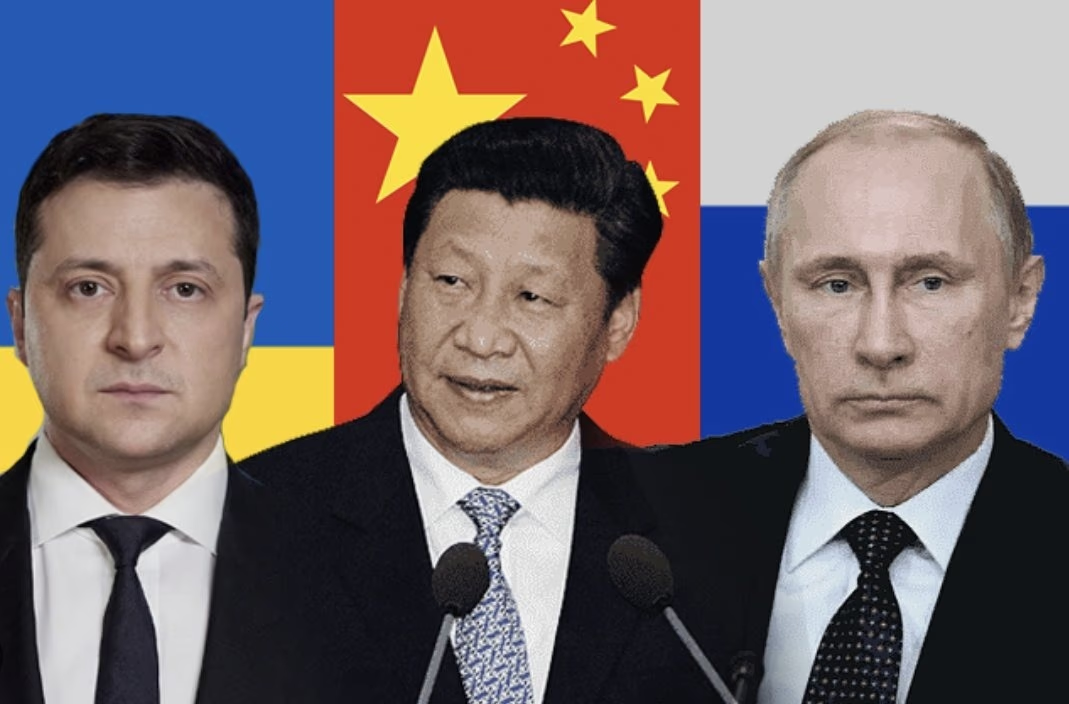
Source: aajtak
President Zelensky has already sensed China’s intention to ride both boats. He criticized China for aiding Russia at the Shangri-La Dialogue in Singapore this year, stating that China's aim was only to shine its global image. China's international ambitions have become more pronounced following its significant role in the Iran-Saudi Arabia deal.
China’s Perspective on PM Modi’s Ukraine Visit
On August 23, the world's eyes were on PM Modi as he reached Kyiv, embraced President Zelensky, consoled him like an elder brother, and shared a message of peace. This didn't sit well with China, which portrayed India's move as a balancing act between Russia and America, viewing it as a symbolic step.
Retired Indian diplomat Anil Trigunayat believes that Modi’s visit to Kyiv can pave the way for dialogue and diplomacy, although it won't be easy and continuous effort will be necessary.
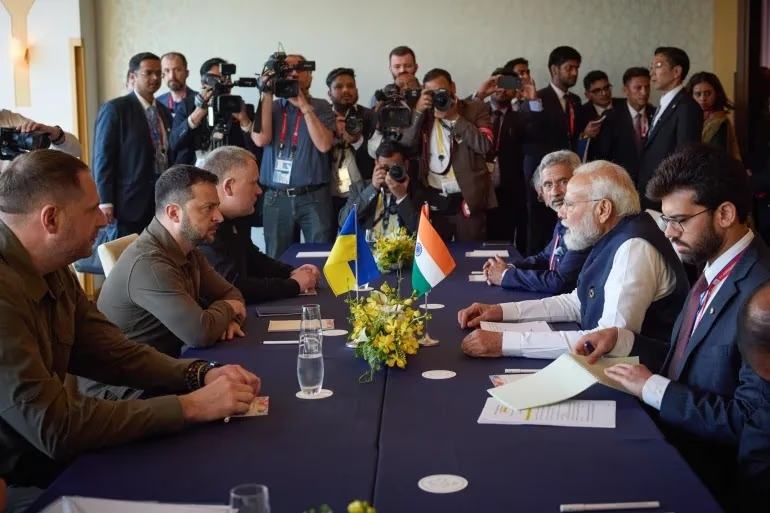
Source: aajtak
Political analyst and former advisor to PM Manmohan Singh, Harsh Khare, suggested that Modi's Ukraine visit was a strategy to appease the U.S., and should not be expected to yield concrete results. According to Khare, Modi's visit was aimed at pleasing Western nations.
Several reports suggest that Modi's strategic move is linked to India's global image, with experts believing that Modi wants to show that India's actions are in national interest and not influenced by external pressure.
America’s Distrust in China
China's desire to act as a peacemaker between Russia and Ukraine is met with skepticism by the U.S. and Europe due to its close ties with Russia and over-ambitious nature. Recently, White House National Security Council spokesperson John Kirby publicly stated that if China portrays itself as a peacemaker in the Russia-Ukraine war, it will not be acceptable. According to Kirby, if this happens, it will give Putin more time to plan anew, with no doubt that China and Russia defy international norms.
Will America Take a Major Step?
On August 23, during the last day of the Democratic National Convention (DNC) in the U.S., Kamala Harris officially accepted the Democratic Party's presidential bid.
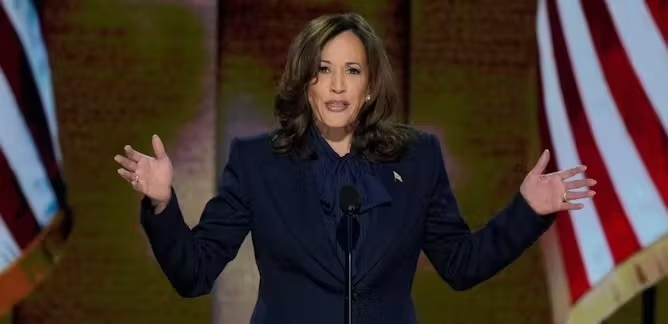
Source: aajtak
On stage, Harris indicated her crucial role in ending the Russia-Ukraine war if she wins the presidential election on November 5. She emphasized that the U.S. will take effective steps to stop this two-and-a-half-year-old war and will focus on restoring peace.
Increase in Oil Purchase from Russia but Decline in Arms Import
During Modi's visit to Kyiv, President Zelensky urged India to stop buying oil from Russia to cripple its economy. However, India continues to purchase oil from Russia at cheaper rates to meet its needs, surpassing China to become the largest buyer. In July, the share of Russian crude in India's total oil imports was 44%, with a record increase to 2.07 million barrels per day.
At the same time, India has reduced its dependency on Russian arms. According to the Stockholm International Peace Research Institute (SIPRI), India's Russian arms imports have decreased in recent years. Now, India also purchases weapons from the U.S., France, and Israel, which is part of India's strategy to end reliance on one country and enhance strategic autonomy.
For both countries that have been suffering from the war for the past two and a half years, this battle has moved beyond the realms of winning or losing. Now, this war is more about the question of self-respect than victory or defeat.
